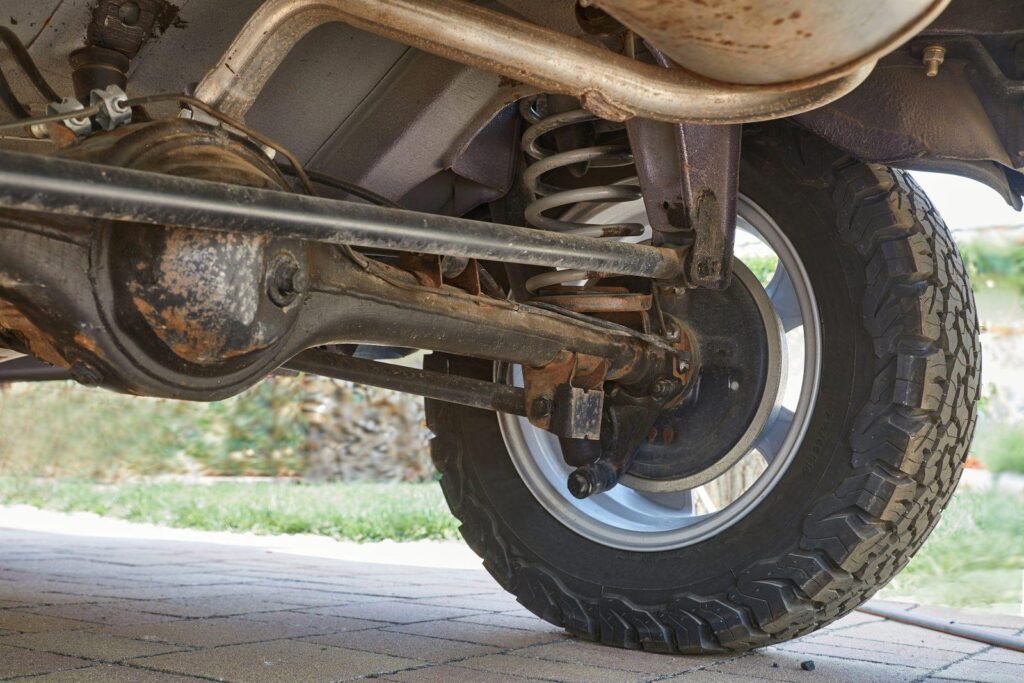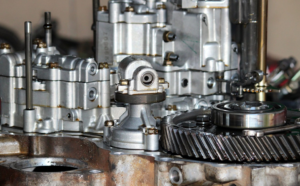Detecting a differential fluid leak involves looking for oil residue, puddles beneath the differential, unusual whining sounds while driving, and inspecting axles and wheels. Regular checks and professional inspection can help prevent damage and costly repairs.

The differential is a crucial component in your vehicle, responsible for ensuring that the outer drive wheel rotates faster than the inner one during turns. Whether you have a rear-wheel-drive or front-wheel-drive vehicle, the differential plays a vital role in maintaining smooth maneuverability. This article delves into the causes, symptoms, and effective solutions for dealing with differential fluid leaks.
Causes of Differential Fluid Leaks:
Differential Gasket: The gasket used for differential housings, typically made of silicon or rubber, can wear out over time due to normal wear and tear, leading to leaks.
Differential Pinion Seal: At the front of the differential, a yoke attaches to the driveshaft. The seal around this yoke, often made of rubber, can get damaged or deteriorate, resulting in leaks.
Differential Side Seals:
These seals prevent differential fluid from reaching the brakes. Made of rubber, they can also become damaged or degrade with time, causing leaks.
Identifying Differential Fluid Leaks:
Visual Inspection:
Look for traces of oil on the underside of the differential or puddles of fluid directly beneath it. These visual cues are clear indicators of a differential fluid leak.
Unusual Sounds:
Leaking fluid may lead to whining sounds as the gears mesh. This noise occurs when there isn’t enough fluid for smooth gear operation.
Why Differential Fluid Matters:
Differential fluid plays a vital role in the longevity of your differential. It serves several essential functions:
Lubricates clutch packs, gears, and bearings.
Ensures smooth operation of ring and pinion gears, transferring power from the driveshaft to the wheel axles.
Cools and lubricates the differential to prevent overheating and damage.
Without adequate differential fluid, metal-on-metal contact can occur, leading to overheating, damage, and costly repairs.
Types of Differential Fluid:
There are two main types of differential fluid:
Mineral Oil:
A natural, crude oil-based fluid.
Synthetic Differential Fluid:
Lab-created for optimal performance.
Synthetic differential fluid is customizable for specific performance needs.
Changing Differential Fluid:
Consult your owner’s manual for manufacturer-recommended service intervals. In most cases, changing differential fluid every 50,000 to 80,000 kilometers is advisable. Neglecting this maintenance can result in friction-related heat, gear weakening, and differential failure, leading to costly repairs.
Effects of Low Differential Fluid Levels:
Low fluid levels in the differential can cause gears to grind, leading to differential failures. Unlike engines with oil filters, differentials lack filters, making prompt fluid changes crucial to prevent unwanted friction and damage.
Detecting Low Differential Fluid Levels: There’s no dashboard light for low differential oil, so visually inspect your vehicle’s underside for oil traces or leaks. Additionally, check for differential fluid on the ground below your vehicle. Major leaks may result in oil spots and a significant amount of fluid on the differential’s bottom.
Why a Rear Differential Leak Is a Concern:
The rear differential, also known as the “final drive unit,” handles heavy loads, directing torque to drive wheels via axle shafts. It’s essential for a vehicle’s movement, especially in rear-wheel drive cars. Ignoring a rear differential leak can lead to transmission issues, poor handling, premature tire wear, and costly repairs. Transmissions are pretty complicated you can read this to learn a bit more.
Preventing Rear Differential Leaks:
Keep the differential vent clear to prevent clogging.
Avoid driving through deep mud.
Regularly inspect driveline parts for damage and vibrations.
Reduce heavy load and hard acceleration to minimize stress on gears.
Fixing a Rear Differential Leak:
Identify the faulty component causing the leak, which could be the differential gasket, pinion seals, side seals, differential cover, rear differential tube, differential vent tube, or axle seals. Replace the problematic part immediately, sound easy? We have all the tools and the expert mechanics to get the job done right, save your weekends for yourself, and book online with us.
Differential fluid leaks can have a significant impact on your vehicle’s performance and safety. Regular maintenance, prompt detection, and timely action are essential to address differential fluid leaks effectively. Don’t delay in resolving these issues to ensure your vehicle remains safe and reliable on the road.


